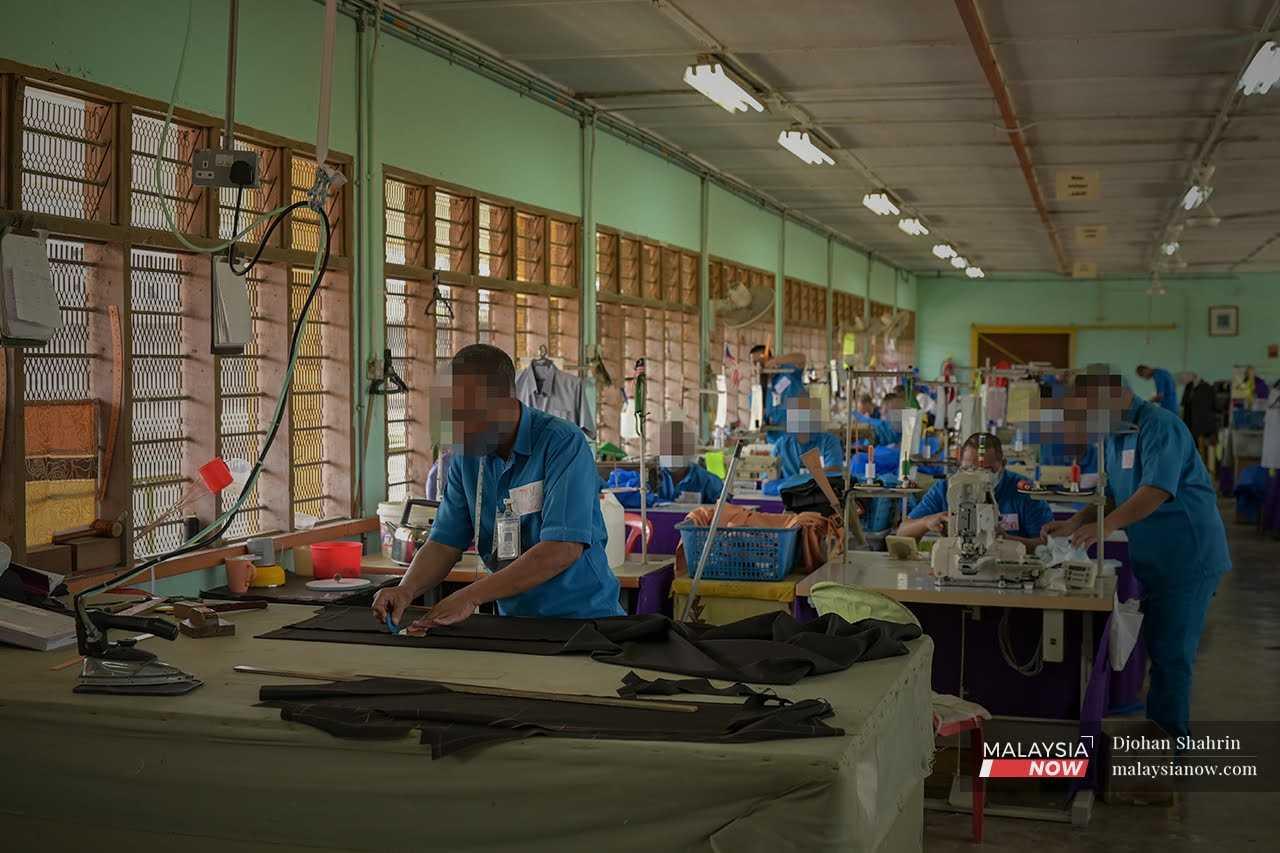How the prison department helps inmates return to the outside world
The department answers those who question the effectiveness of its rehabilitation programmes.
Just In
Wan (not his real name) spends most of his time playing with clay in a ceramic workshop near his sister's house in Kuantan, Pahang.
At the age of 16, he was sentenced to death for his involvement in a murder case.
In 2009, however, he was pardoned by the sultan and spent more than a decade behind bars at several prisons in the country before being freed at 31.
His sister says he no longer spends time in the company of others, preferring instead to hide away in the workshop.
Wan himself says he is in good health and enjoys a life of solitude.
Even today, he finds it difficult to believe that he is truly free after his years as a prisoner on death row.
Sometimes, he says, he misses the prison environment.
There, he says, he picked up many skills such as cooking and carpentry, in addition to his love for pottery.
The prison also did much to help him, both mentally and spiritually, he adds.
"I was looked after by the police and lawyers until my trial concluded," he said in a recent interview with MalaysiaNow.
"At that point, I was still a teenager. After I was sentenced, the prison officers took care of me instead. I am very grateful to have met with good officers while I was there."
Prison in Malaysia
Questions often arise over the effectiveness of prison programmes and the extent to which they can help rehabilitate those convicted of criminal offences.
Some are released from prison only to end up behind bars once more.
But Kausalya Devi Sathoo of the Prison Policy Division says the majority of offenders successfully undergo their punishments without returning to jail.
"The rate of prisoners returning to prison after release is 15.8%, which means that for every 100 people released from jail, 85 are successful," she said in an interview at the prison headquarters in Kajang where MalaysiaNow was granted exclusive access to the prison premises.
"This is the problem: we only focus on the 15 who return, when in fact 96.6% of those freed on parole are success stories."
Prisons are often described by activists and NGOs as places capable of inducing madness due to the associated pressure and physical and emotional discomfort.
But Kausalya said prison officers and staff are professionally trained to look after and help inmates return to a better life.
She said the prison department prioritises three main elements in its human development programmes for the rehabilitation of inmates: attitudes, skills and knowledge.
"The modules formed by the prison department are also done in collaboration with academics at public universities," she said.
"They are theoretically recognised by academics and implemented by the prison officers according to the categories of crime and offence."
Speaking to MalaysiaNow, Kausalya said prisoners come from all walks of life. Some have secondary school exam qualifications while others have never set foot in a classroom.
Every offender who is sent to prison undergoes a screening process to determine their level of knowledge, skills and health.
This will decide which programme they will follow during their time in prison.
"So far, the prisoners don't give much trouble," she said. "They go along with the programmes because they know that prison is not a place of punishment but a place of rehabilitation. If it's already good, it can get better."
High demand
Kausalya said the rehabilitation programmes are implemented to the best of the department's ability.
But how well they succeed also depends on the efforts of the inmates themselves.
"It's their choice," she said. "Some people might have come in 10 years ago but are still doing the same things while others need only 10 days to fully repent."
The programmes also focus on skills and knowledge, so that prisoners might have a chance of finding work once they are released.
Some well-known companies in fact actively seek such people to work at their factories, Kausalya added.
"It used to be that families could not accept former convicts because they thought their children were bad people," she said.
"But these days, people who go to jail can work and earn a salary to help their families back home.
"Even before they are released, their families are waiting for them. This is part of what we do to help them live a good and successful life in the future."
Subscribe to our newsletter
To be updated with all the latest news and analyses daily.
